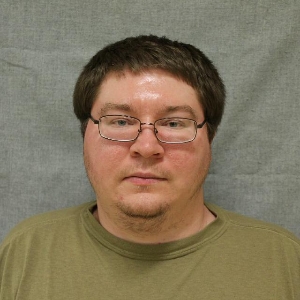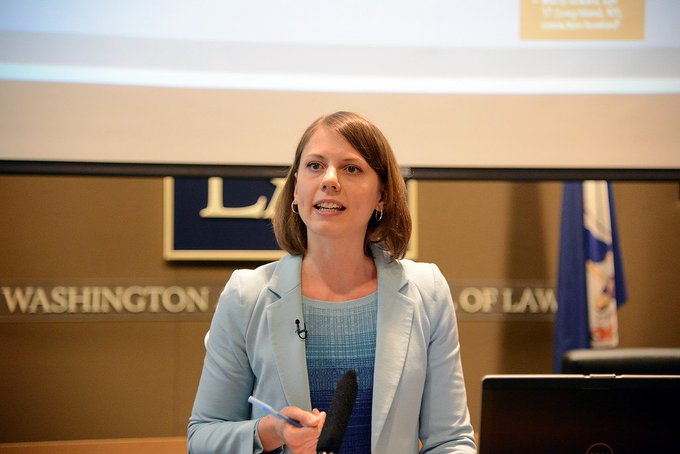
Laura Nirider, the lawyer for Brendan Dassey, is a Clinical Assistant Professor of Law who is a project co-director for the Center on Wrongful Convictions of Youth.
Dassey, then a teenager, was convicted in 2007, along with his uncle Steven Avery, in the murder of photographer Teresa Halbach. Both were featured in the Netflix series Making a Murderer and Making a Murderer 2. The second season is available for streaming on October 19, 2018. At issue in the Dassey case: Videotaped confessions that the cognitively slow Dassey gave to investigators. (You can see crime scene photos from the case here.)
Dassey’s conviction was overturned by a federal magistrate judge and a federal court panel. However, it was reinstated by the full federal court. The U.S. Supreme Court declined to review the case.
Here’s what you need to know about Laura Nirider:
1. Laura Nirider Focuses Her Work on Police Interrogations & Confessions Involving Children
Nirider has been co-director of the Center on Wrongful Convictions of Youth since 2009. It’s part of the Northwestern University School of Law, Bluhm Legal Clinic.
She has also worked as a clinical assistant professor and clinical fellow.
“My responsibilities include representing wrongfully convicted youth, co-teaching a clinical course on wrongful convictions of youth, and directing the Center’s mission and work,” she wrote in her curriculum vitae. “Both my courtroom work and classroom work focus on police interrogations and confessions.”
She is actively involved in cases.
“I maintain an ongoing caseload of post-conviction cases involving individuals who were convicted as children or adolescents. The majority of my clients’ cases involve confessions,” she wrote.
“In addition to my direct representation work, I consult on and write amicus curiae briefs in cases involving interrogations and juvenile justice across the country, including before the United States Supreme Court, and undertake collaborative efforts with law enforcement in support of interrogation reform I also regularly appear as an expert on interrogations in print, film, and digital media outlets that range from Netflix’s Making a Murderer to the New York Times.”

Wisconsin prison systemBrendan Dassey
Her curriculum vitae adds that she also “helped develop the first organization in the world that is focused exclusively on wrongfully convicted teenagers and children. Since the Center’s inception, I have helped raise over $1,500,000 in support of the Center.”
You can read her curriculum vitae here. Brendan Dassey was 16 at the time of the Halbach murder.
2. Nirider Graduated From Northwestern Law School
According to her curriculum vitae, Nirider graduated from Northwestern University School of Law in Chicago, Illinois. She graduated magna cum laude.
She was Associate Editor for the Northwestern University Law Review, and a member of the Order of the Coif. She received a bachelor of arts degree with honors in political science from the University of Chicago.
On Twitter, she writes as her profile description, “Director of Center on Wrongful Convictions of Youth @cwcyouth @NorthwesternLaw. Clients include #BrendanDassey & @DamienEchols of West Memphis Three.”
3. Nirider Believes Brendan Dassey’s Confessions Were Flawed
On Twitter, Nirider wrote, “This reality — that confessions can be coerced even without ‘extreme’ tactics or ill intent, is understood by psychologists and law enforcement leaders — but courts still don’t get it. And people like Brendan are paying for it. Time to make some change.”
She also wrote, “Spectacular editorial by @latimes urging #SCOTUS to take Brendan Dassey’s case — and saying what needs to be said: his case would still be the perfect vehicle to address larger constitutional issues ‘even if it had never inspired a television series.’”
When the U.S. Supreme Court declined to hear Dassey’s case, Nirider said, “Brendan was a sixteen-year old with intellectual and social disabilities when he confessed to a crime he did not commit. The video of Brendan’s interrogation shows a confused boy who was manipulated by experienced police officers into accepting their story of how the murder of Teresa Halbach happened.”
Nirider earned a lot of fans on Twitter when she appeared on the first Making a Murderer.
She also wrote, “It doesn’t take abuse to get a kid to confess falsely; implied promises of leniency and false friend tactics are risky too. And it doesn’t require police misconduct either; even well-intentioned cops can inadvertently induce a false confession.”
4. Laura Nirider Is a Mother of Two & Has a Husband
Laura Nirider gave an interview in 2016 to Flare in which she discussed her family. At that time, she was the mother of two children, ages 3 and seven weeks.
“It’s also important for me to connect with my family because it helps me remember that the clients I’m serving have their own families who need me to fight for them as hard as I possibly can,” she told Flare.
Nirider is married. She told Flare she liked to “get my kids in bed early, so I can enjoy some hours to myself. I like to have a glass of wine (typically Chardonnay), chat with my husband, put my feet up and try and get some distance from the day for a little bit.”
5. Laura Nirider Has Handled Cases of Wrongful Conviction
Nirider wrote of one case on Twitter, “Proof that the truth always comes out: another 16-year-old false confessor, Daniel Villegas of TX, is exonerated of capital murder after 25 years. Honored to call him a friend of @sdrizin and mine. Look at this video and see if it doesn’t give you hope.”
Her curriculum vitae lists some of the prominent cases she’s been involved in. They include:
Echols v. State, No. CR08-1493 (Arkansas State Court, 2011) Co-counsel on behalf of alleged ringleader of the “West Memphis Three,” who was sentenced to death in internationally-known triple murder case.
People v. Taylor et al., 92 CR 27247 & 95 CR 23475 (Circuit Court of Cook County, Illinois, 2011) (“Dixmoor Five”) Co- counsel in post-conviction action involving five convicted teenagers, three of whom had falsely confessed to rape-murder during police interrogation.
Newman v. Gaetz, No. 08 CV 4240 (U.S. District Court for the Northern District of Illinois, 2012) (affirmed, Newman v. Harrington, 726 F.3d 921 (7th Cir. 2013)) Co-counsel in federal habeas corpus action and in subsequent retrial involving a sixteen-year-old charged with murder.
She weighed in on the Brett Kavanaugh hearings on Twitter, writing, “Before voting, every senator should ask him or herself whether, going forward, J. Kavanaugh can calmly and impartially judge the case of a sex abuse victim or accused sex offender. If the answer isn’t an immediate and unqualified yes, nominate someone else. #KavanaughHearings.”
READ NEXT: Crime Scene Photos in Steven Avery/Teresa Halbach Case & Murder

